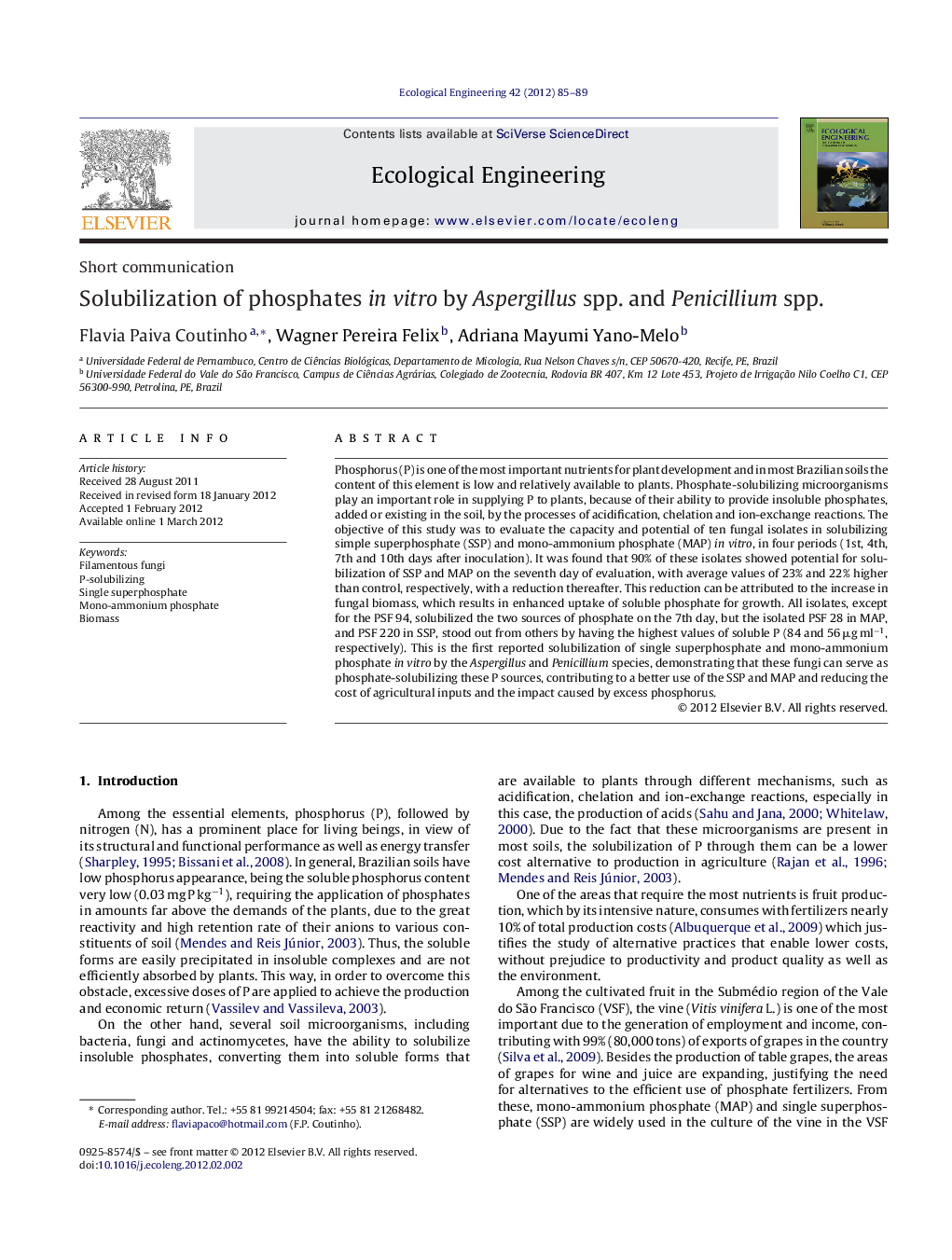| Article ID | Journal | Published Year | Pages | File Type |
|---|---|---|---|---|
| 6302753 | Ecological Engineering | 2012 | 5 Pages |
Abstract
Phosphorus (P) is one of the most important nutrients for plant development and in most Brazilian soils the content of this element is low and relatively available to plants. Phosphate-solubilizing microorganisms play an important role in supplying P to plants, because of their ability to provide insoluble phosphates, added or existing in the soil, by the processes of acidification, chelation and ion-exchange reactions. The objective of this study was to evaluate the capacity and potential of ten fungal isolates in solubilizing simple superphosphate (SSP) and mono-ammonium phosphate (MAP) in vitro, in four periods (1st, 4th, 7th and 10th days after inoculation). It was found that 90% of these isolates showed potential for solubilization of SSP and MAP on the seventh day of evaluation, with average values of 23% and 22% higher than control, respectively, with a reduction thereafter. This reduction can be attributed to the increase in fungal biomass, which results in enhanced uptake of soluble phosphate for growth. All isolates, except for the PSF 94, solubilized the two sources of phosphate on the 7th day, but the isolated PSF 28 in MAP, and PSF 220 in SSP, stood out from others by having the highest values of soluble P (84 and 56 μg mlâ1, respectively). This is the first reported solubilization of single superphosphate and mono-ammonium phosphate in vitro by the Aspergillus and Penicillium species, demonstrating that these fungi can serve as phosphate-solubilizing these P sources, contributing to a better use of the SSP and MAP and reducing the cost of agricultural inputs and the impact caused by excess phosphorus.
Keywords
Related Topics
Life Sciences
Agricultural and Biological Sciences
Ecology, Evolution, Behavior and Systematics
Authors
Flavia Paiva Coutinho, Wagner Pereira Felix, Adriana Mayumi Yano-Melo,
